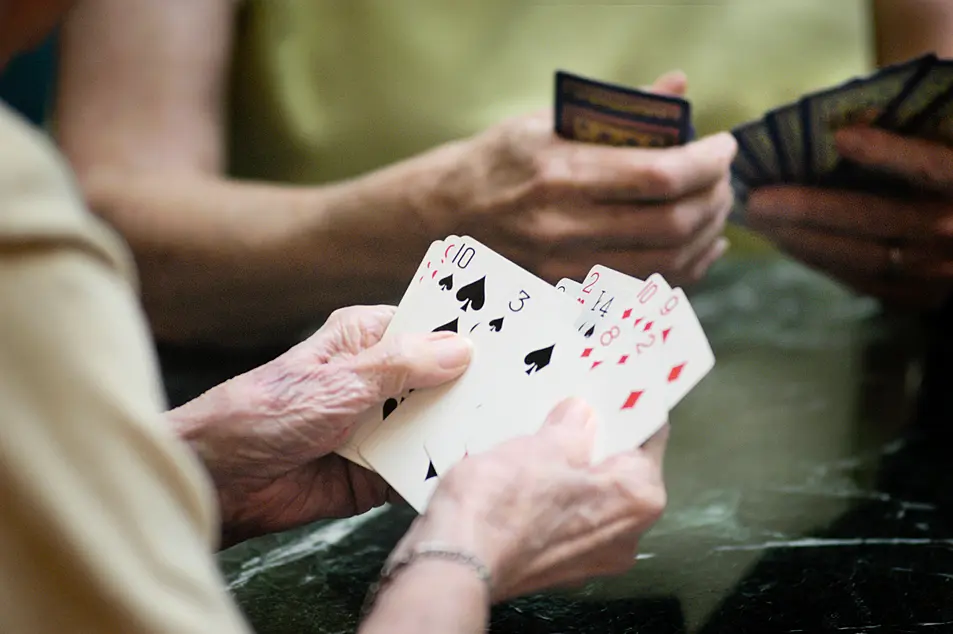Many of us will be pulling family favorites like Scrabble and Chess out of the cupboard over the Christmas period to enjoy them with our loved ones.
Many of these beloved games are called “mind sports” because they help train your brain.
We discussed how these activities strengthen brain function and why engaging in them regularly can help maintain mental sharpness later in life. We spoke to experts.
What are the benefits?
“Engaging in mind sports offers considerable cognitive benefits, especially in maintaining mental sharpness as we age,” says consultant neurologist Dr Steve Alder. “They provide a variety of mental challenges that can improve control of attention (concentration), working memory, planning, imagination, and other executive cognitive functions, making them valuable tools for lifelong brain health. ”
“It becomes even more powerful when social interaction is involved.”
How often should it be done?
Dementia expert Suzanne Mumford recommends: “The more often you can do brain-boosting exercises, the better.” “Every day is ideal, but if that’s not possible, three to five times a week is recommended.”
If you don’t stimulate your brain, what are the possible consequences later in life?
“Common signs that we’re not taking the best care of our brains are forgetting important things or having trouble paying attention and thinking clearly.” Expert and cognitive rehabilitation therapist Natalie McKenzie explains. “When it comes to age-related cognitive decline, research suggests that learning new skills may help with the cognitive decline we all worry about.”
Here are six of the best mind sports to try.
1. Backgammon
“Backgammon combines strategic planning, probability, and risk assessment, stimulating the prefrontal cortex and numerical reasoning areas of the brain,” Alder explains. “This game promotes adaptability and cognitive flexibility while improving mathematical reasoning and spatial awareness.
“Additionally, the social aspect of playing backgammon creates connections and reduces stress.”
2. Card

“Card games challenge cognitive flexibility, logical reasoning, and mathematical skills, stimulating the frontal lobe and numerical reasoning areas of the brain,” says Alder. “These games also encourage social interaction and boost mood and mental health.
“Playing games like bridge, poker, rummy, and solitaire improves your memory, decision-making, and adaptability, and keeps your brain focused and sharp.”
3. Crossword

“Crosswords engage many cognitive areas (domains and processes) that aid mental agility and acuity,” McKenzie explains. “They use memory processes to recall words and knowledge, thus stimulating these neural pathways.
“There’s critical and strategic thinking at work here that allows for problem-solving while expanding vocabulary. This stimulates memory processes to encode and store these new learnings, leading to more neural firing. It will happen.”
In some studies, crosswords have been associated with a delayed onset of memory decline in patients later diagnosed with dementia, Mumford added.
“Dementia is associated with a loss of neural connections in the brain, but activities like crosswords can help create new connections. This can help older people living with dementia find relief from symptoms. “We’ll be able to do that,” Mumford explains.
4. Chess

“Chess requires strategic thinking, memory, and pattern recognition, and stimulates the prefrontal cortex and other important areas of the brain,” Alder says. “This helps develop foresight, perseverance, and problem-solving skills while promoting neuroplasticity, which increases cognitive flexibility.
“For this reason, chess is especially effective for staying sharp later in life.”
5. Jigsaw

“Jigsaw is all about solving problems that can be affected by specific types of dementia, such as vascular dementia,” Mumford says. “Doing jigsaw puzzles is a great way to maintain these skills, with the added physical benefit of dexterity.
“Good motor skills are essential as we age because they help older adults remain independent for longer.”
6. Scrabble

“Scrabble is a powerful tool for stimulating vocabulary, language skills, and strategic thinking,” says Alder. “It activates the left hemisphere of the brain for language processing and the prefrontal cortex for planning and decision-making.
“Players can benefit from improving their vocabulary, memory and concentration skills while enjoying social interaction, reducing loneliness and stress.”
